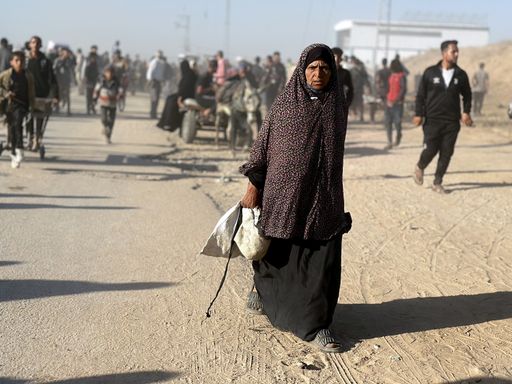Boston Consulting Group’s CEO apologised to staff and admitted that there were “process failures” in the company’s decision to help design and run a controversial Israeli-backed group, Gaza Humanitarian Foundation (GHF), to deliver aid to Palestine’s Gaza, reported The Washington Post.
According to The Washington Post, Christoph Schweizer said the firm had fired two partners involved in the Israeli-American effort and launched a “formal investigation” to ensure “this does not happen again.”
In the email, he wrote: “I deeply regret that in this situation, we fell short — of our own standards and of the trust that you, our clients and our broader communities place in BCG. I am sorry for how deeply disappointing this has been to many BCGers around the world.”
In an official statement, the first said that it agreed in October 2024 to provide “pro bono support to help establish an aid organisation intended to operate alongside multilateral efforts to deliver humanitarian support to Gaza.”

The letter is the latest fallout from the decision by Israel and the United States to bypass the UN and channel the delivery of essential aid through the GHF, “an opaque entity that has limited aid delivery to a few distribution hubs overseen by US private security contractors in coordination with the Israel Defence Forces (army)”.
Last week, the firm announced that it had ended its participation in the GHF amid intense criticism about its operations. The Washington Post first reported on the firm’s withdrawal, saying it withdrew personnel from Tel Aviv in late April.
The GHF has been facing criticism from the UN and other aid groups, who expressed concerns about the independence of the programme.
In Rafah, a crowd of Palestinians come under gunfire while trying to collect food from distribution hubs. The incident left nearly 50 dead and over 300 injured. Philippe Lazzarini, the head of the UN Palestinian relief agency, referred to this as a “death trap.”

The Israeli government has dismissed criticisms and hailed the project as a success.
According to The Washington Post, “most humanitarian groups backed out of the project because of their concerns about Israeli oversight and the militarisation of aid. Others have rejected the new system based on practical assessments that the GHF cannot operate at the scale required to address Gaza’s hunger crisis, where more than two million people are at risk of starvation after Israel barred the entry of food, water and humanitarian aid for nearly three months”.
Explaining the role played by the Boston group, The Washington Post said their consultants played a critical role in designing and maintaining the business operations of the GHF and regularly met with Israeli officials, according to three people familiar with the GHF, who spoke on the condition of anonymity because they were not authorised to discuss the matter.
“It’s the operational and analytical rigour behind the foundation,” said one person close to its operations. “They mapped the value chain and pinpointed costs. Without BCG, you don’t have the full picture.”
A BCG spokesperson confirmed that two senior partners had been terminated for overseeing “unauthorised work” related to the foundation on Thursday. They were identified as Matt Schlueter, a managing director and senior partner in BCG’s defence and security practice, and Ryan Ordway, who also worked in BCG’s public sector defence and security practice.



















